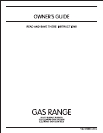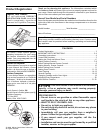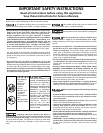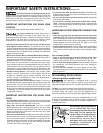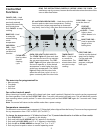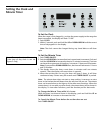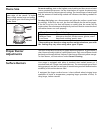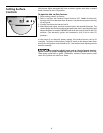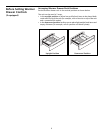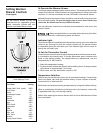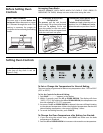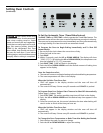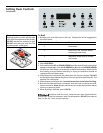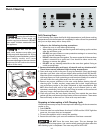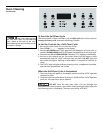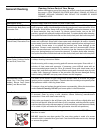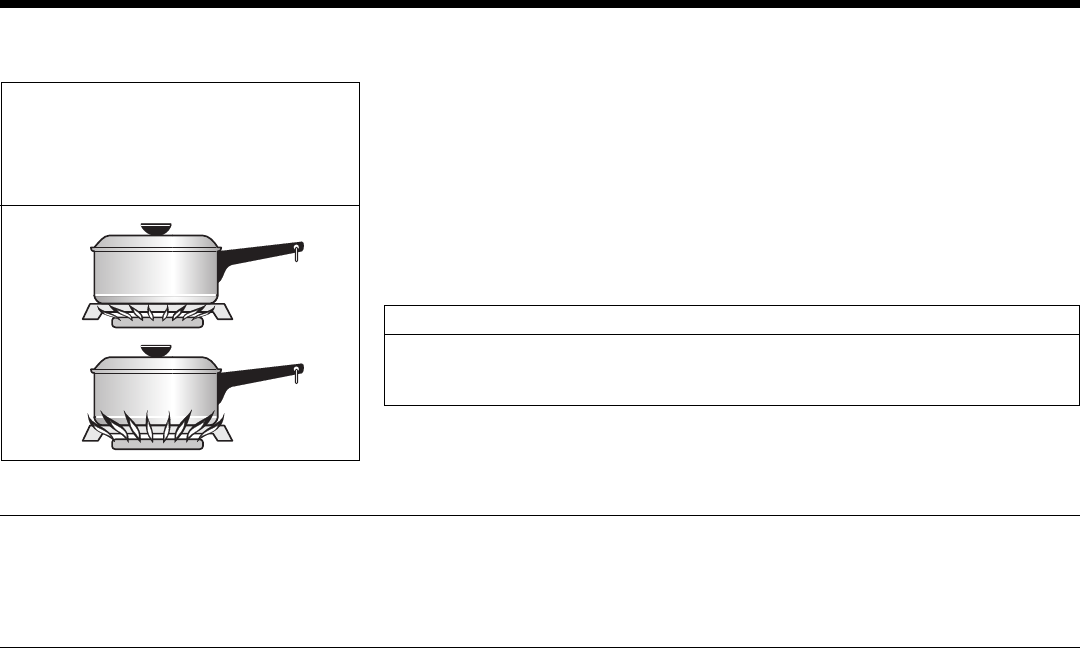
7
For most cooking, start on the highest control setting and then turn to a lower
one to complete the process. Use the chart below as a guide for determining
proper flame size for various types of cooking. The size and type of utensil used
and the amount of food being cooked will influence the setting needed for
cooking.
For deep fat frying, use a thermometer and adjust the surface control knob
accordingly. If the fat is too cool, the food will absorb the fat and be greasy.
If the fat is too hot, the food will brown so quickly that the center will be
undercooked. Do not attempt to deep fat fry too much food at once as the food
will neither brown nor cook properly.
*These settings are based on using medium-weight aluminum pans with
lids. Settings may vary when using other types of pans.
The color of the flame is the key to proper burner adjustment. A good flame is
clear, blue and hardly visible in a well-lighted room. Each cone of flame should
be steady and sharply defined. Adjust or clean burner if flame is yellow-orange.
To clean burner, see instructions under General Cleaning.
Your range is equipped with either 4 standard sized sealed burners or 2
standard sized and 2 larger sized sealed burners. The amount and type of food
being prepared, and the size and type of utensils being used will determine the
suitability of the surface burner used.
If equipped the larger surface burner is best utilized when bringing large
quantities of liquid to temperature, preparing larger quantities of food, or
using larger, heavier utensils.
Never extend the flame beyond the
outer edge of the utensil. A higher
flame simply wastes heat and energy,
and increases your risk of being burned
by the flame.
Flame Size
Proper Burner
Adjustments
RIGHT
WRONG
Surface Burners
Type of Cooking
Start most foods; bring water to a boil; pan broiling
Maintain a slow boil; thicken sauces, gravies; steam
Keep foods cooking; poach; stew
*Flame Size
High Flame
Medium Flame
Low Flame



